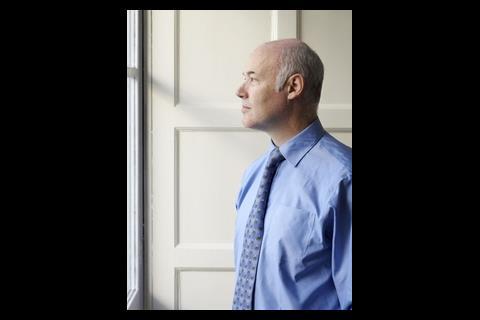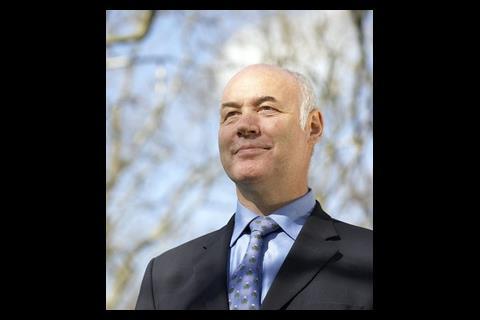Philip Wolfe has been pushing solar power since the seventies. If only government policy would show similar commitment to a future for alternative fuels, he tells Will Jones
When interviewed on BBC radio recently, Al Gore, ex-presidential candidate and now environmental champion of the US, stated that he envied our political climate: “It is great to see political parties slugging it out to see who can be the greenest. If only the US would wake up to the scale of the problem.” He praised both the government and the opposition for their forthright views on the environment and congratulated them on the mature level of political debate around such a sensitive issue.
So, should we be lauding our environmentally minded politicians? “I think the government has been extremely good in highlighting environmental issues and climate change, and, in promoting the role of renewables as a high level contributor to solving our energy issues,” says Philip Wolfe, chief executive of the Renewable Energy Association. “But, and it is a big but, government now needs to match the rhetoric with solid policy action.”
“Government must realise that the path we are now on is just not sustainable. We need a fundamental step change in our approach to energy production. That is going to involve a lot of new investment not just in renewables but in all parts of the energy network. No longer is it a question of evolution; now it really is a question of revolution.”
Wolfe is a quietly spoken man but one with a cast-iron conviction that what he is doing is right. A Cambridge engineering graduate, he worked for Lucas Industries and founded Lucas Energy Systems in 1976, before negotiating its joint venture with BP in 1979, when he became chief executive of BP Solar. In 1982 Wolfe set up an independent company, the Intersolar Group, becoming one of the first to recognise the potential for renewable energy sources. From 1993 to 2002 Intersolar was the sole UK manufacturer of photovoltaic cells. Wolfe was instrumental in setting up the Renewable Power Association in 2001, which became the Renewable Energy Association (REA) in 2005. The association has grown from about 80 member companies in 2003 to more than 500 this year, including bodies as diverse as the Photovoltaic Association and Sea Power.
Wolfe believes we have got to change the way that we think about energy. For so long it has been a cheap commodity that everyone took for granted. Now, our fossil fuel-based energy sources are running out and something has to be done. “We need a quantum shift in our whole energy system from where we are today,” he says. “Take electricity; it is built around large-scale centralised generation feeding out through a dumb distribution network to the consumer. That isn't the best approach; firstly, because there are a lot of power losses in the system and second, because centralised power generation is relatively inefficient. If we had smaller scale decentralised power generation systems we could take steps to drive up efficiency and use the heat that is going up cooling towers and lost.
We need a fundamental change in our approach to energy production
“And, while we're on the subject,” says Wolfe, “we don't have a policy for heat, full stop. Electricity yes, transport soon, but nothing for heat. If one introduced a renewable heat obligation, similar to the 2002 renewables obligation, which actually only deals with electricity, you could save about the same amount of carbon for about a third of the cost. It is a ‘low hanging fruit’ but one that's been ignored because policy-makers confuse energy with electricity. The Energy Review is two-thirds about electricity, whereas electricity accounts for only one-third of our energy. We focus on nuclear, gas and coal-fired power but nothing is done about heat and precious little on transport fuel. The whole balance is wrong.”
A move to smaller scale power generation at point of use is more efficient and removes losses in transmission. However, transmission networks would then need to be more actively managed and be able to accommodate power flow in both directions to let people sell back to the grid when they have a surplus.
Wolfe says: “Our members realise there is a massive amount of investment needed to make this happen and that industry will have to shoulder the burden to bring about this quantum change. On the whole we are happy to do that, to take on board the technical and commercial risks. What is stopping us moving forward at full speed is political risk. At the moment there isn’t a robust long-term energy policy and industry just doesn’t know when government might change its mind.”
Wolfe's statement is borne out by the constant amendments to the 2002 Renewables Obligation Order. On its publication, the legislation was meant to be set for 25 years and yet it has been altered every year since 2002. Government is considering more major changes, following the Energy White Paper due later this year. “This sends out very unpalatable messages to business,” says Wolfe. “The investor doesn’t know if it makes a decision today that everything isn’t going to be changed in the near future. We need a more long-term energy policy.”
There are similar stumbling blocks facing the consumer renewables market. The Low Carbon ��ɫ����TVs Programme, set up to increase the uptake of solar panels, wind turbines and other renewable technologies to boost volume and so eventually drive down price to the consumer, is desperately underfunded. With spending capped at £500,000 each month and subsidies to individuals running out in a matter of minutes, it is now actually alienating the public rather than exciting them.
Our industry is happy to take on the technical risks. What’s slowing us is political risk
“The net result is that people who want to go green are becoming disillusioned because they can't get the support that they were promised,” says Wolfe. “And, the ironic thing is that this is not huge sums of money we are talking about. The Low Carbon ��ɫ����TVs Programme’s £28 million funding would probably pay for one mile of the A14 to be built. The idea was a good one but currently thousands of consumers are being disappointed every month all for the want of an extra £50 million.”
In addition, Wolfe believes in the stick approach just as much as tempting us with a carrot. “Government should simply regulate highly energy inefficient products off the market; ban them. And, use the ��ɫ����TV Regulations: mandate a level of energy efficiency and renewable generation so that new and refurbished buildings would be forced to raise the energy efficiency standards to a high degree, both by using green building methods and by integrating renewable generation.”
The REA is campaigning actively on numerous environmental issues including a renewables heat policy and it has recently had confirmation that the environment secretary, David Miliband, will be attending the launch of a manifesto for renewable heat. “We are starting to have some success in getting it onto the government's radar,” says Wolfe.
But small steps aren’t enough. Wolfe points out that renewables are our only solution for the future and that, by definition, if the power sources we use aren’t sustainable, then at some point we are not going to be able to maintain them. There is no lack of alternative technologies – it’s only the political will to make them happen that is missing.
“The resources are there,” he points out. “The UK has tremendous wind, wave and solar potential, and most of the technologies are developed, too. But, based on the latest climate change evidence we need to be getting there rather faster than we had previously thought. We only have decades to do it and government needs to set out a much more proactive energy policy in relation to the fundamentals of renewable resources.
“I'm glad to see that the prime minister has recently over-ruled his secretary of state and is pushing for the mandatory 20% target by 2020. This is the action we need. Government now needs to clear obstacles out of our way and work with us towards a more sustainable future.”
Source
��ɫ����TV Sustainable Design
Postscript
Our interview took place before Gordon Brown increased grants for household renewables by £6 million in his last budget. Afterwards, Wolfe said that while this would support demand for the next fiscal year, there must be new measures to help householders invest in renewables when the grant programmes ended.
























No comments yet